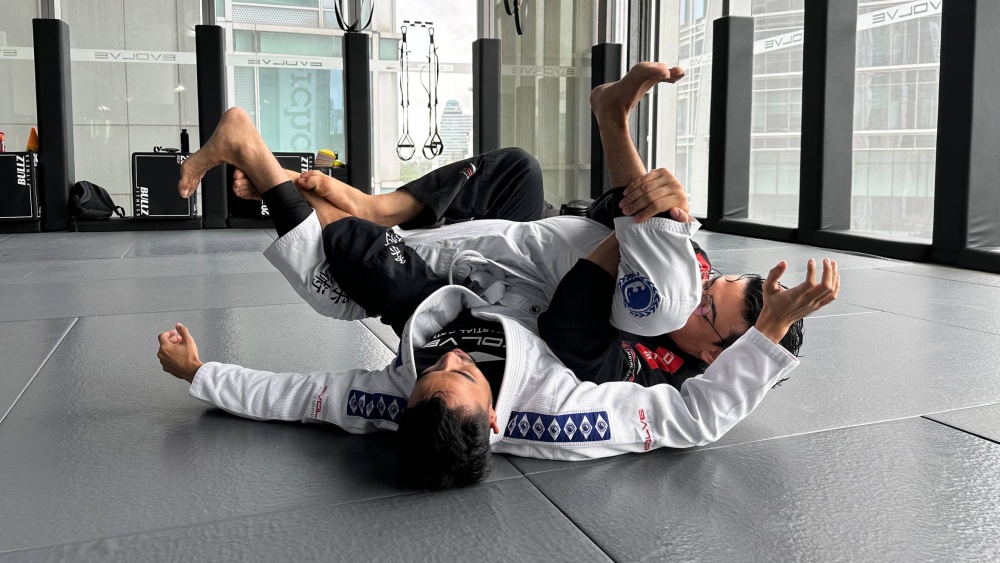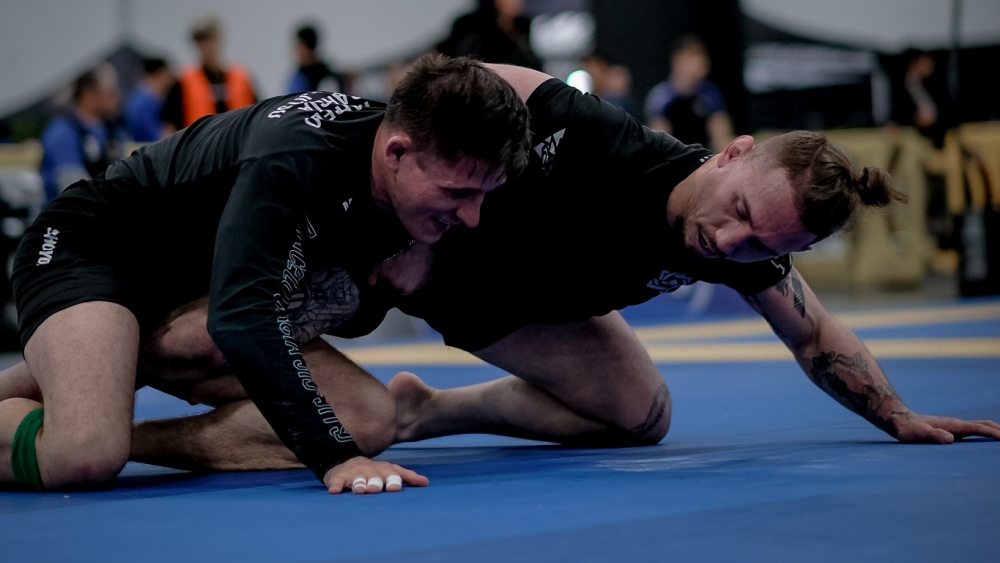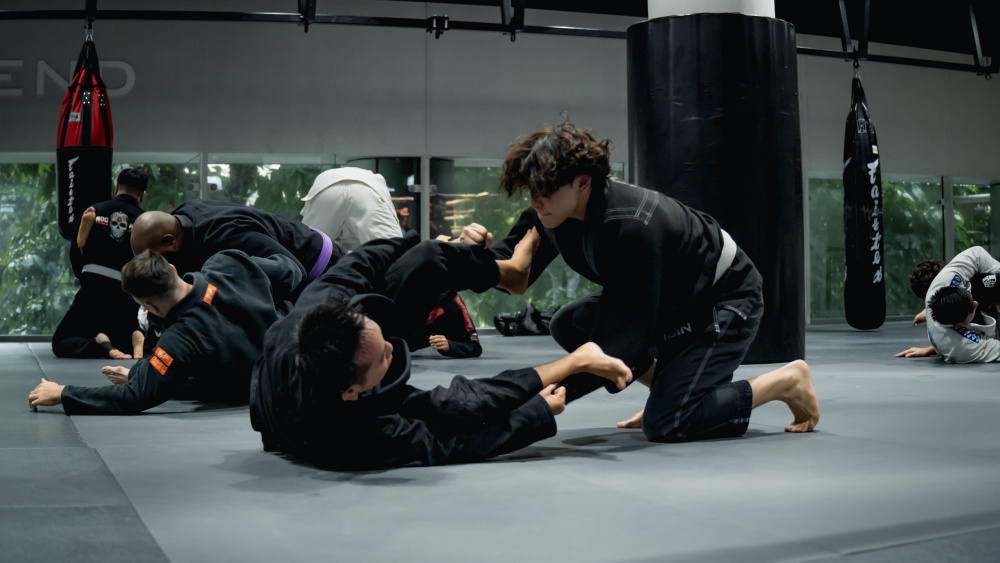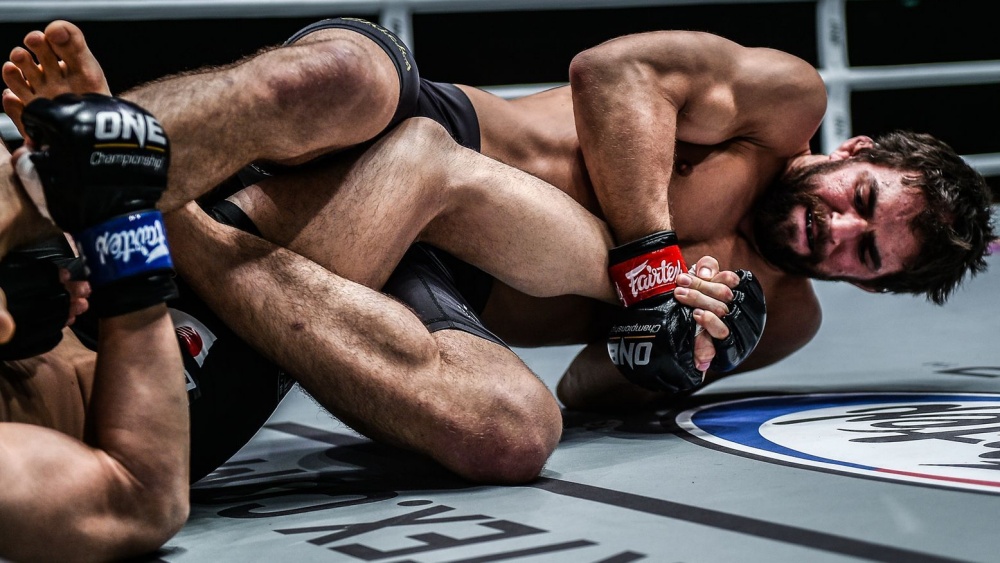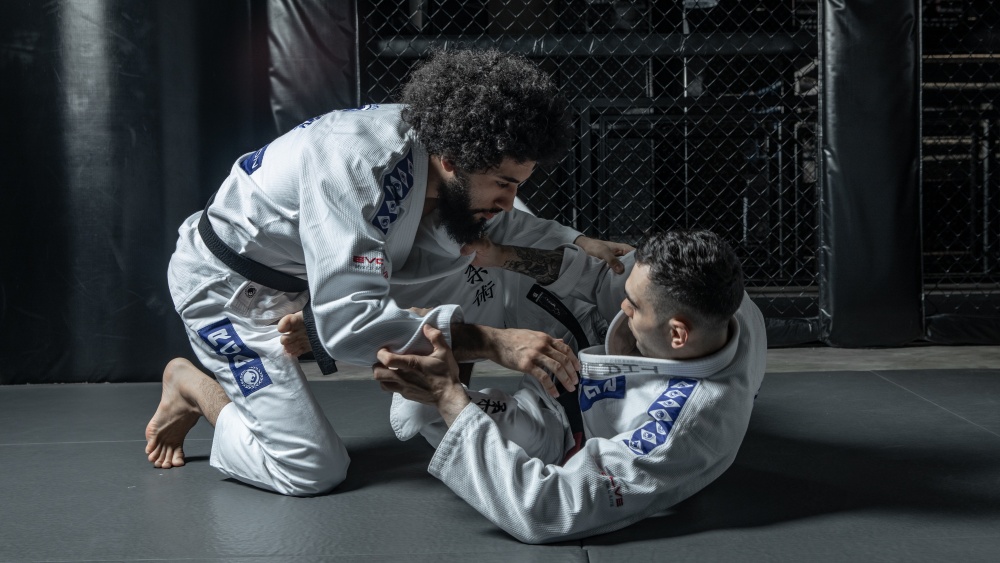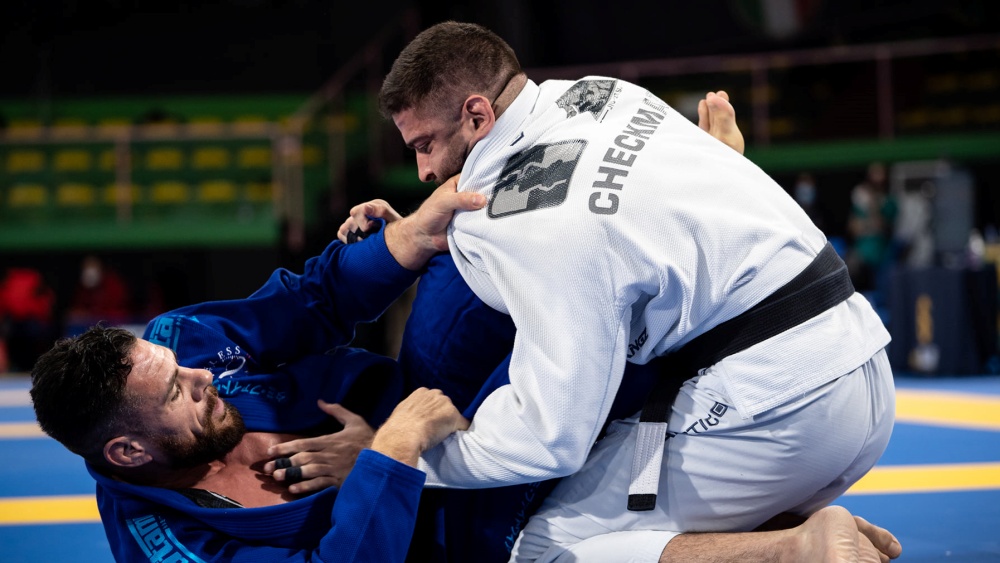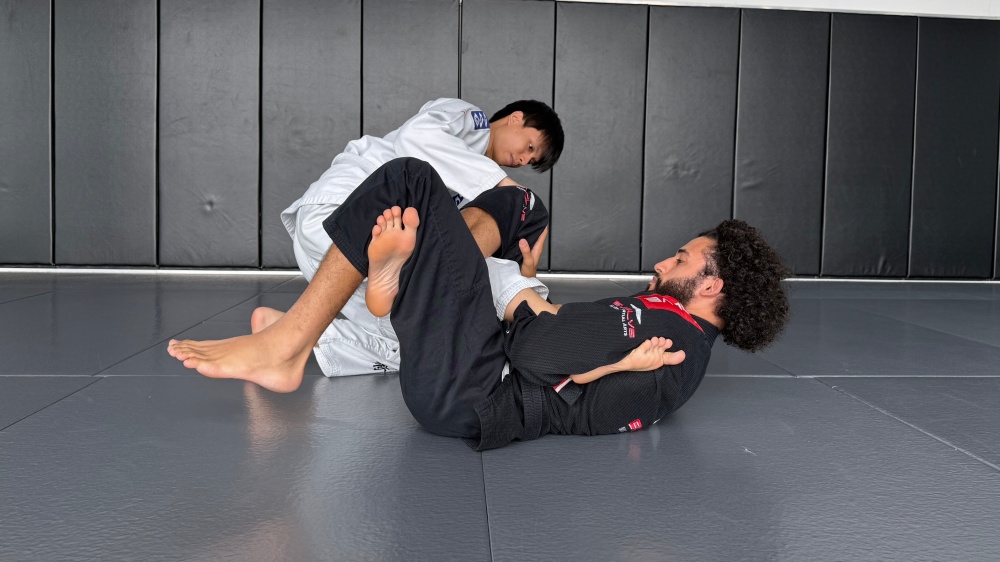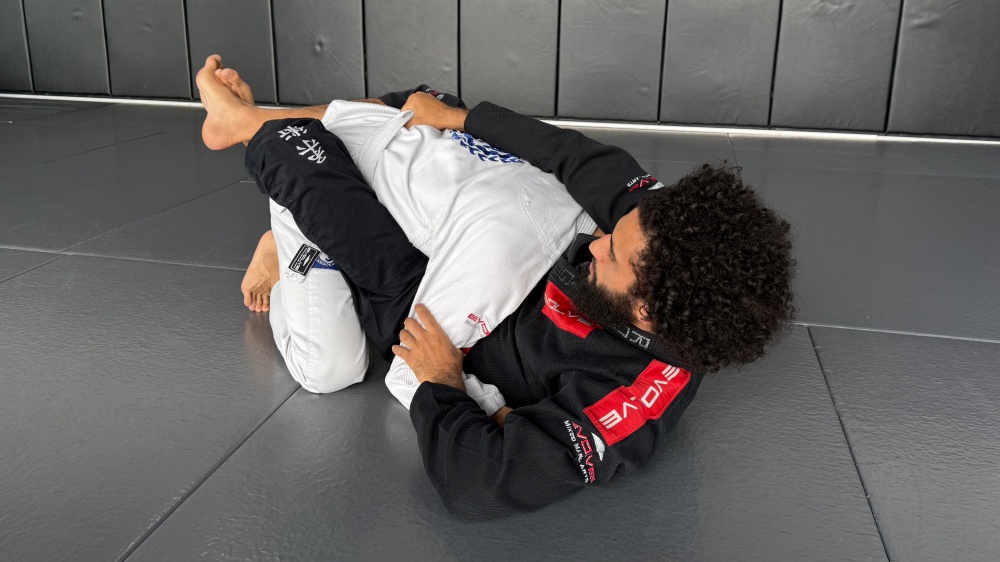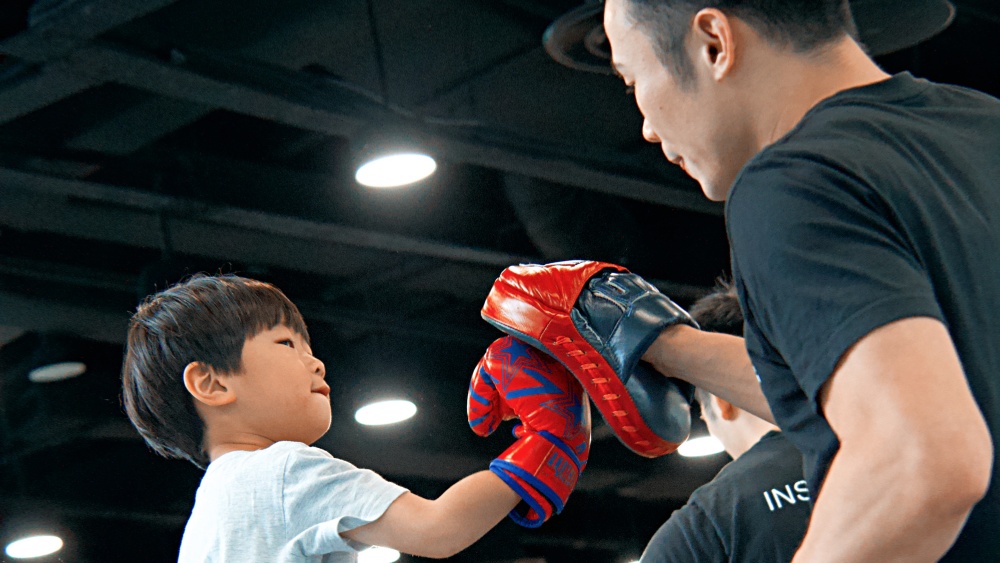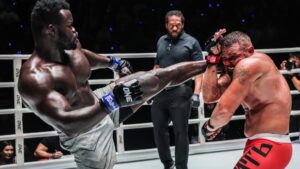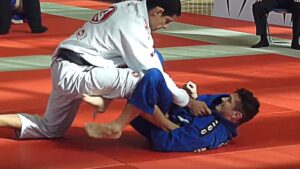Learning your passing style in BJJ can take years and years of experimentation. Brazilian Jiu-Jitsu is a martial art with literally hundreds of techniques for every major position. Building a cohesive game takes a lot of work, and choosing the right techniques is critical to cover all possible scenarios.
In this article, we’ll talk about a fantastic passing technique known as the over-under pass.
Guard Passing Defined
Guard passing is the art of bypassing an opponent’s frames to advance to more dominant positions such as side control and mount. Passing someone’s guard is no easy feat. The guard is one of the most favored positions in BJJ, and many practitioners have guards that are very hard to crack.
It takes a lot of technical knowledge to slowly break the guard. You must first control the limbs to limit framing, then move your body to bypass the legs. There are many ways to pass the guard, but one of the most classic approaches is to use pressure to smash your way to dominant positions. The over-under pass is one of BJJ’s premier pressure passing styles.
The Over-Under Pass
The over-under pass is where you stack the leg on one side and move to the opposite side to clear the legs. It is a great technique because it is easy enough to do and has a ton of utility in both gi and no-gi.
In this video, Stephan Kesting and Fabio Gurgel discuss the history of the technique. Fabio Gurgel is a world-renowned champion and coach and has been in the game for decades. He mentions that back in the day, the most famous guard pass that people used was the stack pass.
A counter to the stack pass is to place the foot on the passer’s hip. This is where the toreando pass then came to be. The over-under pass is an intermediary position where you can pass from there or go back to the stack pass or toreando. Fabio shares that you can modify your grip by using your shoulder to immobilize the shin. Doing this makes it even harder to recover one’s guard.
One of the most popular users of the over-under pass is the great Bernardo Faria. Bernardo Faria is a student of Fabio Gurgel and is considered one of the top black belts of his generation. He has a simple yet crushing passing style that uses his large frame to negate guards and submission attempts. His over-under pass is one of his strongest weapons and was a crucial ingredient during his world championship run.
BJJ black belt Tom Davey demonstrates the basics of the over-under pass in this video. To start, ensure that one of your opponent’s legs is between yours. This will make your entry that much easier. Once you’re all set, it’s time to dive in.
Dive under and underhook the leg on one side. You can grab the belt if it’s gi and the hip if it’s no-gi. Grab the other leg by blocking it and holding it near the shin. The combination of the over-under grips makes it extremely difficult to shrimp out, allowing the passer to move with little compromise.
From here, come up and pin your opponent using your shoulder. Move towards the center, straighten the leg, and step over to establish the pass. It may look like a lot of steps, but it’s actually just using your grips to hop over a leg. While the over-under pass is typically done using pressure, you can also use speed to hop over if you prefer doing so. Regardless of how you do it, both work well if you keep your grips and limit space for your opponent to recover guard.
Submission From The Over-Under
Now that we know how to use the over-under pass, let’s use the same position to attack with submissions. Bernardo Faria demonstrates the kneebar from over-under (dogbar) in this video. From the over-under position, switch your hand position by cupping the leg instead of pushing the pants straight. Move towards the middle, do a “loose triangle” where your leg is placed near your other leg’s calf, and drop your hips to hyperextend the opponent’s leg.
This technique is very handy because it doesn’t compromise your position. Basically, two things may happen: You get the kneebar, and your opponent taps. You miss the submission, but you are still in a strong position to pass the guard. The kneebar from over-under has practically no downsides and, therefore, is a must-have technique to round out your pressure passing game.
Using The Over-Under Pass As The Cornerstone Of Your Passing Game
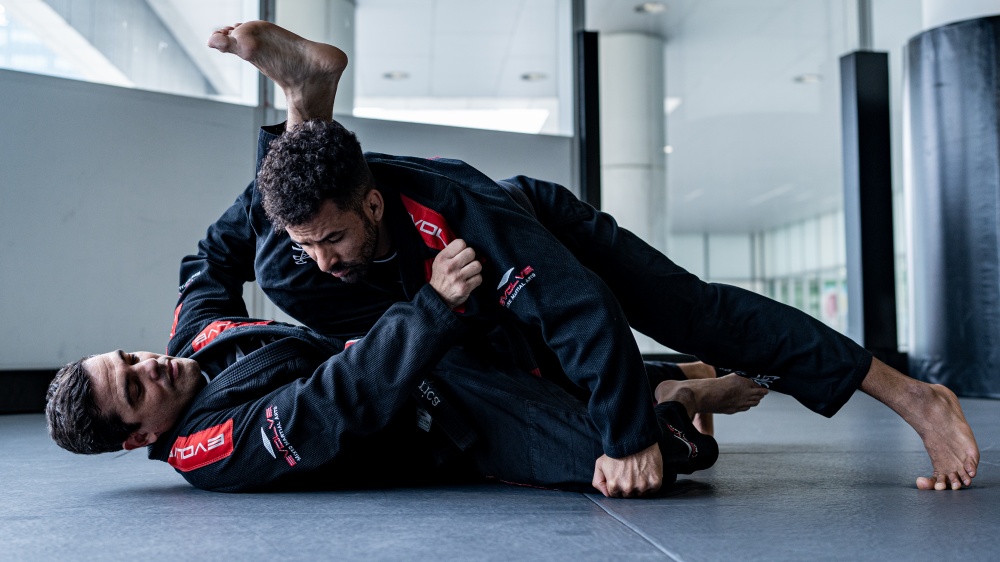
As Fabio Gurgel said, it is always a good idea to use a couple of techniques to keep the opponent on the defensive. You can use the over-under pass (or any pass for that matter) as your primary passing technique, but you should also be ready to move to other techniques once it gets countered.
Combining offensive techniques, whether it be passes or submissions, can make your Jiu-Jitsu much harder to deal with. If you are interested in using the over-under pass, we suggest that you also learn the stack and toreando pass so that you have counters to the most common defenses to the over-under.
Final Thoughts
The over-under pass is one of those techniques that will benefit anyone regardless of size and strength. It may be one of the most straightforward guard passes you’ll learn, but we are confident that it will serve you well up until the black belt level.
If you are interested in mastering the over-under pass, we encourage you to review how it is applied at the highest levels. This will give you the confidence to plunge in and learn the technique inside out.
You may also like:
